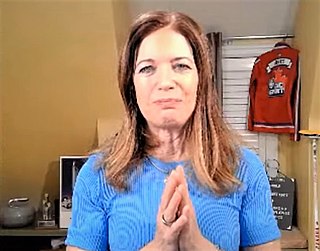A Quote by Steve Chen
There are lots of new products and new services making adding content easier. But there's not many people on the other side helping users digest that content.
Related Quotes
Many ideas have been transformed by adding one crucial adjective-women's bank, women's music, women's studies, women's caucus. That adjective did more than change a phrase. It implied a lot of new content: child care, flexible work hours, new standards of creditworthiness, new symbolism, new lyrics.
Authors and publishers want fair compensation and a means of protecting content through digital rights management. Vendors and technology companies want new markets for e-book reading devices and other hardware. End-users most of all want a wide range and generous amount of high-quality content for free or at reasonable costs. Like end-users, libraries want quality, quantity, economy, and variety as well as flexible business models.
Writing for UrbanMoms has awarded me a multitude of amazing opportunities. I have traveled to new places; alone and with my family. I have discovered new products, new books, new trends and new restaurants, and been able to share them with my readers. I've met other wonderful writers and many incredible celebrities.
People's mouse clicks decide what businesses, services, and content succeed. Users have equal access to tiny businesses with viral ideas and blue-chip companies, allowing these enterprises to compete on their own merits. It's how so many small start-ups have been able to become Internet success stories.

































